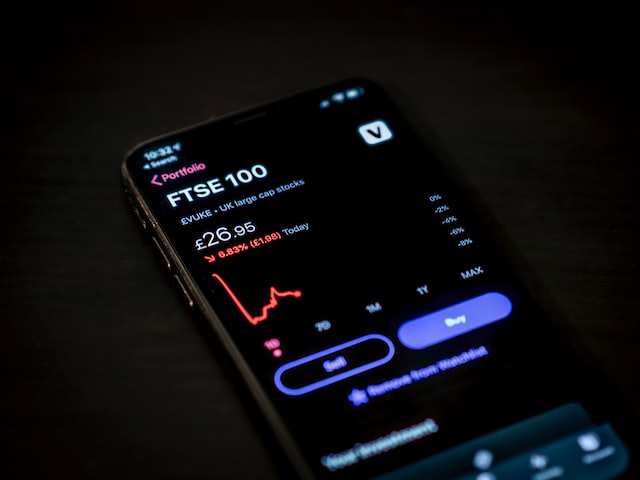Uncertain times are a great time to invest in illiquid stocks. Illiquid stocks are securities that are not registered with the Securities and Exchange Commission (SEC). They are not subject to the same rules and regulations as common stocks, so they can offer a higher potential return.
In addition, illiquid stocks may be more volatile and less liquid than common stocks, which makes them ideal for those who prefer volatility over lock-in.
What are Illiquid Stocks?
Illiquid stocks meaning is quite simple! They are stocks that are not generally available to purchase on the open market.
Illiquidity is the lack of liquidity in the stock market. This can affect the price of a stock, as well as whether or not someone can buy it. It can also affect an individual’s investment in a stock.
Now, that we’ve understood the Illiquid stocks meaning let’s dive deeper into them.
How Illiquidity Can Affect Your Investment?
Illiquidity affects an individual’s ability to purchase a stock and might also affect an individual’s investment in a company. For example, if you are looking to invest in a company that is not generally available on the open market, illiquidity may mean that you are unable to do so.
How to Avoid Illiquidity?
When it comes to investing in stocks, it’s important to do your research. This means checking the stock market and finding out what companies are in a state of flux or have low liquidity. You can also help avoid illiquidity by buying stocks only when there is a good chance they will be available to sell.
Buy Illiquid stocks only when there is a good chance they will be available to sell.
Buying an illiquid stock can seem like a risky move, but remember that you have a good chance of selling the stock before it becomes available to buy again. In order to ensure you make the correct decision, consult with an investment advisor who can provide you with advice on how to invest in these types of stocks.
Also, read – How to Sell ESOP Shares?
Sell Illiquid stocks before they are sold out.
If you want to sell an illiquid stock before it becomes unavailable for purchase, one strategy is to try and find someone who wants the stock and sells it quickly so that you don’t lose money on the sale.
Another option is to use a stock brokerage account or some other type of trading platform that allows you to sell your shares quickly and without taking any risks.
Buy Illiquid stocks only if you have a good chance they will be available to buy.
Remember: always buyer beware when investing in unwell-known or unstable stocks! If there is any reason you believe that the company is invested in may not be safe, please contact your financial advisor immediately!
Tips for Investing in Illiquidity

When it comes to investing in illiquidity, it’s important to find a time when the market is in a good mood. This means buying stocks that are in a low price range, as this will help you avoid stocks that are in a struggling market. Additionally, it’s important not to invest in stocks that are considered “at a low market price.” When looking for an illiquid stock, make sure to research its prices and find out what others are saying about it.
Avoid Illiquid stocks that are at a low market price.
This rule of thumb also applies when investing in stocks that are considered “at a bad market price.” If you think the stock is worth less than its current value, don’t invest in it. Instead, look for companies with healthy financial prospects and hope that the stock will rebound soon.
Check the list of Illiquid Stocks Here.
Invest In Illiquid Stocks that are at a Good Market Price.
Finally, stay up-to-date on financial news by reading news articles or watching financial videos related to the stock you just bought. By doing this, you can be prepared for any potential future updates and keep your investment portfolio healthy and profitable.
Avoiding Illiquidity can be a difficult task, but if done correctly it can be a great way to invest in stocks. By researching the stock and buying only when there is a good chance it will be available to sell, you may have less of an impact on the market and can maintain a higher rate of return.
Additionally, by staying up-to-date on financial news, you can stay informed about what is happening in the stock market and make better decisions.
What is the Capital Gain on Unlisted Shares? [Detailed Guide]
What is Liquid Stock?

Liquid stock is the stock that can be converted to cash.
The liquid assets include cash, marketable securities, and accounts receivable. These assets can easily be converted into cash in a short amount of time
Liquid assets are classified as having a high liquidity ratio; this means that they are frequently sold off because they are so easy to convert into cash. The opposite of liquid is illiquid, which refers to investments that cannot be quickly or easily converted into usable funds.
Liquid Stocks vs Illiquid Stocks
Liquid stocks are a type of stock that is sold at reduced prices. Sometimes these stocks are those which have been sitting for a long period of time and the company wants to get rid of them. Liquid stocks can be riskier than other stocks because it’s harder to find out information about them but they can also provide an opportunity to make more money than with other types of stocks.
Investors should make sure that they are educated on liquid stocks before investing in them and should not invest money in something if they don’t know what it is.
Liquid stocks are a company’s assets that can easily be converted into cash. Illiquid stocks cannot be easily converted into cash.
Liquid stock refers to the liquid cash of the company, which is more abundant in the original meaning of “liquidity” in finance, it means that there is enough cash flow for the day-to-day expenses, and the company can still have enough money to invest and support future growth.
Illiquid stock refers to assets that can not be easily converted into cash.
Liquidity refers to how easily an asset can be bought or sold without impacting the asset’s price. For example, stocks, bonds, currencies, and foreign exchange all have different liquidity levels and are consequently more or less desirable for a company with a lot of cash on hand.
Liquid stocks are easy to trade and have low volatility, these are typically large-cap stocks that have been established for years in stable sectors like consumer goods. Illiquid stocks are those that tend to be more volatile as they may not be as heavily traded on the market. Illiquid stocks often involve companies in newer industries or companies that may not generate enough revenue.
Difference Between Listed and Unlisted Company
ETFs vs Liquid Stocks: Which is Right for You?
ETFs and liquid stocks are two of the most popular investment vehicles around. They both offer a lot of potential for growth, but which one is right for you? Let’s take a closer look at each before making your decision.
What are ETFs?
An ETF is an investment vehicle that allows investors to invest in stocks. ETFs are available in a variety of formats, such as mutual funds, individual stocks, and exchange-traded funds (ETFs).
What are the Different Types of ETFs?
ETFs can be divided into two main types: market-making ETFs and index funds.
Market-making ETFs are designed to track actual stock prices within a specific industry or sector.
Index funds are designed to invest in a diversified basket of assets, including stocks from multiple industries or sectors. Index funds can be more expensive than market-making ETFs but have higher return potential because they seek to replicate the performance of a specific index.
How to Invest In Unlisted Stock Companies
What are the Benefits of ETFs?
The benefits of investing in an ETF vary depending on the type of ETF you choose and your goals for the investment.
For example, if you want to save money on your groceries while on vacation, an index fund may be a better choice than a market-making ETF because it will track similar stocks across many different food items instead of just one product. Additionally, index funds can offer better diversification than individual stocks so you’re less likely to lose money if your investments go down in value; they also tend to have higher yields than traditional bonds or savings accounts).
What are Their Uses?
ETFs are a type of investment that allows investors to buy and sell securities. ETFs can be used to invest in a variety of assets, including stocks, bonds, and real estate. ETFs can also be used as an asset management tool to help you save money on your investments.
What are Their Benefits?
ETFs have many benefits over traditional stock options or mutual funds. For example, ETFs can offer investors the ability to selectively purchase and sell securities, which can provide greater control over their investments. Additionally, ETFs often have lower costs associated with them than mutual fund options or stock options.
What are Their Drawbacks?
There are a few potential drawbacks to using ETFs as an investment vehicle: some people may find them difficult to understand; they may not be suitable for all investors, and they may not be as accessible as traditional stock options or mutual funds.
How to Choose the Right ETF for You?
ETFs are investment vehicles that allow investors to buy and sell shares of specific stocks. They offer a number of benefits over liquid stock options, such as low volatility (lower risk) and the ability to keep your money invested for extended periods of time.
Different ETFs are available depending on your needs and financial situation. To find the right one for you, start by exploring the different types of ETFs available and find one that best suits your needs. You can also use our free ETF comparison tool to help you choose the right ETF for your money.
Which ETF is the Right One for You?
There is no one-size-fits-all answer when it comes to which ETF is the right one for you. The key is to figure out what type of investor you are, what types of stocks you want to invest in, and how much money you want to save each year. Once you have this information, it’s easy to select an appropriate ETF for yourself.
Conclusion
ETFs are a fantastic investment option for those looking to make money. ETFs are different types of investments that offer different benefits and can be a great choice for those looking to grow their money. By choosing the right ETF for you, you can maximize your potential profits while minimizing your risks.
